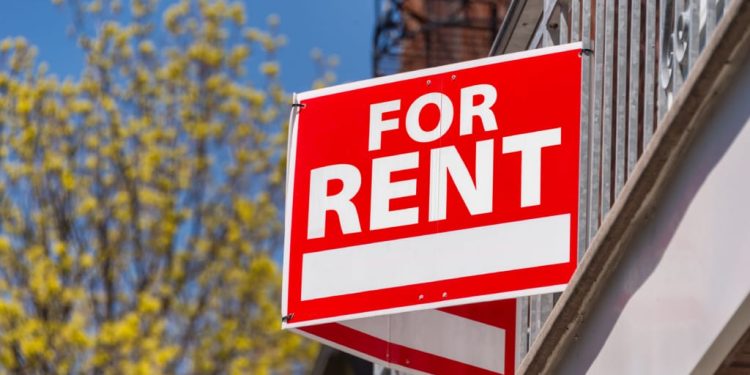Rhode Island, known for its historic charm and scenic coastline, has also seen a surge in rental costs in recent years. According to [insert source], rents in Rhode Island have risen by an average of [insert percentage] over the past year. This trend is putting a strain on many residents, particularly low- and middle-income earners.
While Rhode Island offers a certain level of tenant protections, the state currently lacks statewide rent control measures. This means landlords have more flexibility in setting rental prices. Understanding your rights as a tenant in Rhode Island is crucial, especially when navigating rent increases.
Tenant Protections vs. Landlord Rights in RI
Rhode Island law leans more towards landlord rights. Landlords are generally free to set rental prices, but they must abide by certain regulations:
- Following Lease Agreements: If you have a fixed-term lease, your rent cannot be increased during the lease period unless the agreement explicitly allows for it.
- Proper Notice for Rent Increases: Landlords must provide tenants with written notice (typically 45 days) before raising rent on a month-to-month tenancy.
- Avoiding Unconscionable Increases: Rent increases cannot be excessive or retaliatory. The Fair Housing Act protects tenants from discrimination based on factors like race, religion, or national origin.
Understanding Rent Increases in Rhode Island
No Statewide Rent Control
Unlike some states, Rhode Island does not have a statewide rent control law that limits the amount a landlord can raise rent each year. This leaves tenants more vulnerable to significant rent hikes, especially when leases expire or during month-to-month tenancies.
Rent Increases During a Lease Term
If you have a fixed-term lease agreement, your rent is generally locked in for the duration of the lease. However, some lease agreements may include clauses that allow for rent increases at specific intervals. It’s essential to read your lease thoroughly to understand the terms regarding rent increases.
Rent Increases for Month-to-Month Tenants
For tenants on month-to-month lease agreements, landlords have more leeway in raising rent. However, they must still provide written notice according to state law (typically 45 days) and ensure the increase is reasonable.
Notice Requirements for Rent Increases
Rhode Island law mandates that landlords provide tenants with written notice before raising rent. The required notice period is usually 45 days. This notice should clearly state the following:
- The amount of the rent increase
- The new monthly rent amount
- The effective date of the increase
Reasonable Rent Increases
While there’s no set limit on rent increases, the concept of “reasonable” applies. Here’s what factors determine a reasonable rent increase:
- Fair Housing Act and Unconscionable Increases: The Fair Housing Act protects tenants from excessive or exorbitant rent hikes. Increases far exceeding the average market rate in your area could be considered unconscionable.
- Market Rate Considerations: Landlords often base rent increases on current market rates for similar properties in the area. Researching comparable rentals can help you determine if the proposed increase is in line with market trends.
What Tenants Can Do When Facing a Rent Increase
If your landlord has notified you of a rent increase, here are some steps you can take:
- Negotiate with Your Landlord: Open communication is key. Discuss your financial situation and explain the difficulty you might face with the proposed increase.
- Research Fair Market Rent in Your Area: Utilize online resources or consult with a realtor to understand the average rental rates for comparable properties in your neighborhood. This information can strengthen your case during negotiations.
- Seek Legal Aid or Tenant Advocacy Groups: Several organizations in Rhode Island offer legal aid and guidance to tenants facing housing issues.
- Document Everything: Maintain copies of all communication with your landlord regarding the rent increase, including the written notice and any email or phone call exchanges. This documentation will be crucial if you need to pursue legal action.
- Consider Rent Reduction Programs: Some Rhode Island cities or towns may offer programs to assist low-income tenants with rent payments. Explore resources available in your area.
City-Specific Rent Stabilization Ordinances
While there’s no statewide rent control, some Rhode Island cities have implemented limited rent stabilization measures through local ordinances. Here are a few examples:
- Providence: The Providence City Council is currently considering a rent control ordinance that would limit annual rent increases to a specific percentage (details are still under discussion). Stay updated on any developments in your city regarding rent control measures.
- Cranston and Pawtucket: These cities have explored the possibility of rent stabilization ordinances in the past. Research any existing regulations or ongoing discussions in your city.
Resources for Rhode Island Tenants
Several resources are available to help Rhode Island tenants navigate housing issues and understand their rights:
- Rhode Island Legal Services (RI Legal Services): RI Legal Services (https://www.helprilaw.org/) provides free legal aid and advocacy to low-income tenants facing eviction, rent increases, or other housing problems.
- Tenant Advocacy Groups: Local tenant advocacy groups can offer support, guidance, and resources specific to your area. Search online for tenant advocacy groups operating in your city or town.
Conclusion: Staying Informed and Advocating for Change
The current housing market in Rhode Island presents challenges for many tenants. By understanding your rights and the legal framework surrounding rent increases, you can be better prepared to negotiate with your landlord or seek assistance if needed.
Here are some concluding takeaways:
- Stay Informed: Keep yourself updated on any legislative developments regarding rent control measures in Rhode Island.
- Advocate for Change: Consider getting involved with tenant advocacy groups or contacting your local representatives to voice your concerns about rising rents and advocate for stronger tenant protections.
- Seek Help When Needed: Don’t hesitate to seek legal aid or guidance from tenant advocacy groups if you face a significant rent increase or encounter difficulties with your landlord.
By working together and advocating for fair housing policies, Rhode Island residents can create a more stable and affordable rental market for everyone.










